
ICAS Bulletin (online ISSN 2836-3418, print ISSN 2836-340X) is published every other week throughout the year at 1919 M St NW, Suite 310, Washington, DC 20036.
The online version of ICAS Bulletin can be found at chinaus-icas.org/bulletins/.
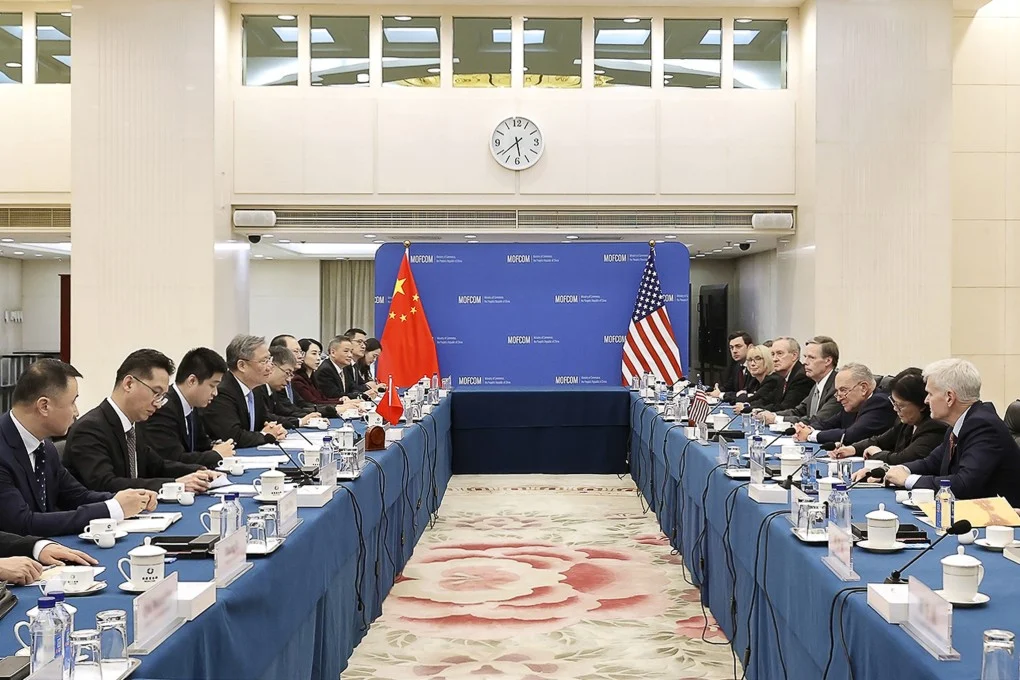
– U.S. senator Mike Crapo and Senate Majority Leader Chuck Schumer co-led a delegation of six senators to various Asian countries, including China.
– During their in-person meeting on October 9, China’s commerce secretary Wang Wentao reportedly said he hoped the U.S. could “avoid overgeneralising and politicizing security issues, and weaponizing [commerce and trade activities with China].”
– Also at the meeting, Chuck Schumer called on China to support Israel after the attacks by Hamas on Israel. Schumer said he was “disappointed” that Beijing showed “no sympathy” for the country. According to Schumer, he asked Beijing to use its influence with Iran to prevent the Israel-Hamas conflict from spreading.
– The White House administration has said that a plan for a summit between U.S. President Joe Biden and Chinese President Xi Jinping is currently being planned for November.
– President Joe Biden has stated that “it is a possibility” he could meet with Xi Jinping in tandem with the Asia-Pacific Economic Cooperation summit in San Francisco in November, though a meeting has yet to be arranged.
Associated News References:
“China’s commerce chief presses US Senate leader Chuck Schumer over trade restrictions,” South China Morning Post, October 10 [Paywall]
“In Beijing, Schumer calls on Xi to support Israel after Hamas attacks,” Reuters, October 9
“U.S. leans on China to use influence with Iran to cool Middle East tensions,” CNBC, October 9
“Biden says a meeting with Xi on sidelines of November APEC summit in San Francisco is a possibility,” AP, October 6
“White House planning face-to-face meeting with Xi Jinping in California,” The Washington Post, October 6 [Paywall]
“Schumer confirms US Senate trip to China, Japan, South Korea,” Reuters, October 4

– On October 4, the China Academy of Space Technology (CAST) announced that it will expand its space station from three to six modules, announced amidst reminders that the NASA-led International Space Station (ISS) nearing the end of its lifespan.
– China’s aerospace industry becomes a hot topic as it aims to compete with the U.S. Furthermore, public reports of Chinese espionage relating to U.S. aerospace company GE now go back as far as 2017.
– Semiconductor Manufacturing International Corp. (SMIC) reportedly has a booming business with the U.S. market despite being blacklisted by the U.S. Commerce and Treasury departments.
– Three of the world’s largest semiconductor chip manufacturers—Nvidia, Intel and Qualcomm—have argued that crackdowns on the industry could have the opposite effect of accelerating the development of an independent Chinese chip industry.
– Jacob Helberg of the U.S.-China Economic and Security Review Commission said in an interview with The Wall Street Journal on October 2 that there could be “a probably more than 50% chance of a hot conflict with China…in the next five years.”
Associated News References:
“China to double size of space station, touts alternative to NASA-led ISS,” Reuters, October 5
“There Is a Bigger Threat to US Trade Than Chinese Chips,” Bloomberg, October 5 [Paywall]
“Blacklisted Chinese Chip Maker Does a Thriving Business With U.S.,” The Wall Street Journal, October 5 [Paywall]
“How the Big Chip Makers Are Pushing Back on Biden’s China Agenda,” The New York Times, October 5 [Paywall]
“Congressional U.S.-China Commissioner Warns of Global Tech Supply Chain Risk,” Bloomberg, October 3 [Paywall]

– On October 6, a former U.S. Army sergeant who had top secret security clearance was arrested and charged with two counts related to the illegal transfer of national defense information to China.
– According to unnamed U.S. officials, the Biden administration has created a web of intelligence-sharing countries, including India, Japan, Australia, South Korea, and the Philippines. This arrangement is described as an attempt to counter security threats.
– The U.S. Treasury Department imposed sanctions on 28 entities involved in a China-based network as part of a specific attempt to curb the global fentanyl supply chain.
– According to a new U.S. State Department assessment, Beijing is using online bot and troll armies in a global disinformation campaign to discourage criticism of its policies.
– On September 27, U.S. and Japanese government agencies jointly warned of a China-linked hacker group named Blacktech. The group “pivot[s] from international subsidiaries to headquarters in Japan and the United States, which are the primary targets,” the statement said.
Associated News References:
“Ex-U.S. Army sergeant charged with trying to pass secrets to China,” NPR, October 6
“US Weaves Web of Intelligence Links in Asia to Counter China,” Bloomberg, October 4 [Paywall]
“US takes action against Chinese companies, people tied to fentanyl,” Reuters, October 3
“China Is Investing Billions in Global Disinformation Campaign, U.S. Says,” The Wall Street Journal, September 28 [Paywall]
“US, Japan authorities warn of China-linked hacking group BlackTech,” Reuters, September 28
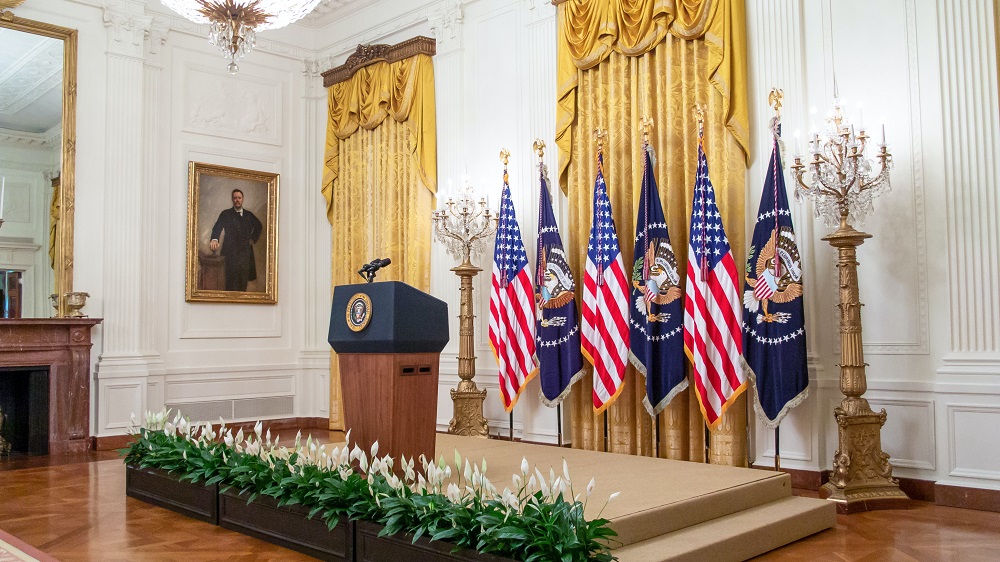
– Ray Dalio, founder of Bridgewater Associates, said on October 3 that “US-China relations are, in a number of areas, on the brink of red lines,” with Taiwan as a major point of contention.
– During the second Republican primary debate, Florida governor Ron DeSantis promised a “hard power” approach to U.S.-China relations if he were to win the election.
– On September 29, the U.S. State Department called for China to release a Uygher academic, Rahile Dawut, from life in prison. Dawut is known for documenting folklore and traditions on Muslim communities in Xinjiang.
– On China’s National Day, similar in meaning to the United States’ July 4, U.S. Secretary of State Antony Blinken congratulated the Chinese government and people in a formal statement that varied slightly from previous years’ statements.
– The Chinese foreign ministry called the U.S. the true “empire of lies” in response to the U.S. State Department’s new report that made various claims that China is disseminating disinformation and censorship abroad.
– Pentagon officials have said that the U.S.-backed removal of a Chinese South China Sea barrier by the Philippines was a “bold step” to defend maritime claims.
Associated News References:
“Ray Dalio Says US-China Relations Are on the ‘Brink of Red Lines’,” Bloomberg, October 3 [Paywall]
“DeSantis invokes China ‘boogeyman’ narrative amid flailing campaign,” The Guardian, October 2
“US condemns China’s reported life sentence of acclaimed Uyghur scholar,” CNN, October 2
“US’ National Day message to China has notable difference from last year’s,” South China Morning Post, October 1 [Paywall]
“China says US is the true ’empire of lies’,” Reuters, September 30
“US Says Philippines Took ‘Bold Step’ in Barrier Row With China,” Bloomberg, September 29 [Paywall]

– On October 6, the U.S. Commerce Department added 42 Chinese companies to an export control list. These entities, along with seven others from six other nations, were listed as having provided Russia with U.S.-origin integrated circuits used by Moscow against Ukrainian civilian targets.
– China-based Bytedance is reportedly buying back shares from U.S. employees, which would value the company at $223.5 billion.
– U.S. Treasury Secretary Janet Yellen said at a Fortune CEO event in Washington that the U.S. is too dependent on China for supply chains, especially in clean energy.
– The White House administration has reportedly notified Beijing of a plan to update export restrictions seeking to limit semiconductor and AI chipmaking.
– China has barred a senior executive at a U.S. based risk advisory firm, who holds a Hong Kong passport, from leaving the country. This move appears to follow a trend in crackdowns on other foreign firms in the country.
– A group of Republican lawmakers in Washington, D.C. have asked the U.S. Department of Homeland Security to investigate Qingdao Sunsong Co. for evading U.S. tariffs.
Associated News References:
“US restricts trade with 42 Chinese entities over Russia support,” Reuters, October 7
“ByteDance’s valuation slumps by a quarter in stock buyback – source,” Reuters, October 3
“Treasury’s Yellen says US overdependent on China for critical supply chains,” Reuters, October 3
“Exclusive: US warned China to expect updated export curbs in October – US official,” Reuters, October 2
“China Blocks Executive at U.S. Firm Kroll From Leaving the Mainland,” The Wall Street Journal, September 20 [Paywall]
“US Lawmakers Ramp Up Trade Heat On China Over Auto-Parts Tariffs,” Bloomberg, September 29 [Paywall]
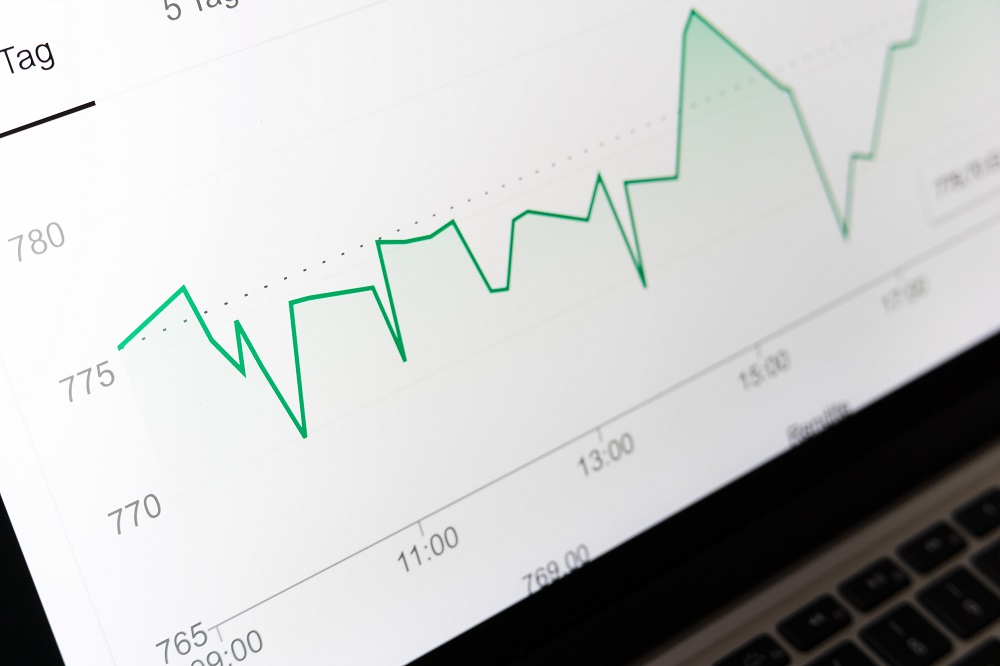
“Police Fatally Shoot Driver Who Crashed Into Chinese Consulate in San Francisco,” The New York Times, October 9 [Paywall]
“China expert Matt Pottinger: ‘Even with a weak economy, Xi is feeling emboldened’,” Financial Times, October 8 [Paywall]
“IMF likely overestimating China’s economic growth prospects, US analyst says,” South China Morning Post, October 5 [Paywall]
“US raises concern with Peru over Chinese control of infrastructure,” Financial Times, October 3 [Paywall]
“US warns green transition raises ‘complex’ China security concerns,” Financial Times, September 28 [Paywall]
Tuesday, October 17, 2023
9am-2pm EDT
Georgetown Marriott Hotel, Washington, D.C.
We are excited to hold this year’s ICAS Annual Conference in-person at the Georgetown Marriott Hotel in Washington, D.C. next Tuesday, October 17!
Featuring two discussion panels, a luncheon speech, and a keynote dialogue between David Lampton (Johns Hopkins University) and Deputy Chief of Mission & Minister Xu Xueyuan (Embassy of the People’s Republic of China in the United States), this year’s conference focuses on assessing the current challenges and exploring the potential prospects for U.S.-China relations in 2024.
During the lunch hour, ICAS is proud to host Amy P. Celico (Albright Stonebridge Group) as our expert luncheon speaker. Lunch will be provided to registered guests.
by Yilun Zhang and Amanda Jin
October 2, 2023
Following the first four months of the 118th Congress, where lawmakers broadly explored and discussed a wide range of issues that could advance Washington’s strategic objective to outcompete China, lawmakers moved on during the May to August, 2023 period to refine the approach and laser-focus on critical issues. Compared to January to April, 2023, a significantly larger proportion of China-related bills, hearings and statements over the last four months (May to August) addressed critical and concrete challenges that are widely recognized in Washington. In particular, considerable advancement is observed in legislative measures on outbound investment controls, the critical minerals supply chain, and the expansion of U.S. trade remedy laws. Meanwhile, traditional and non-conventional national security concerns as well as the issue of Taiwan remain as hot topics in legislative deliberations related to China.
By the end of August, the 118th U.S. Congress introduced 276 bills that address China or China-related issues. While many of them still remain in the realm of highlighting issues of concern related to China, unlike at the beginning of the year, many of the bills are now more focused on addressing or solving the issues rather than just voicing a sense of grievance. Ideological differences and COVID-19 conspiracies still remain in the legislative discussion but are quickly being superseded by more professionally guided policy discussions that address the specifics of U.S.-China strategic competition. However, this also shows the 118th Congress’ determination to formalize and facilitate U.S.-China competition, regardless of where the political wind might be blowing.
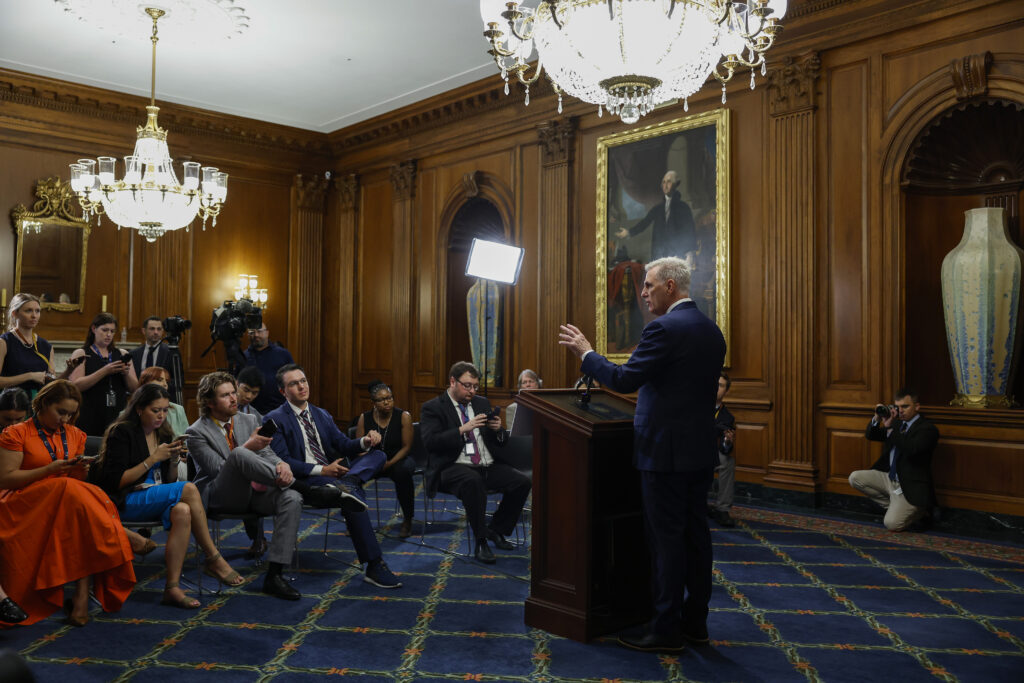
*This Brief is part of the ICAS U.S.-China Legislative and Executive Actions Directory (L.E.A.D.) Project, which summarizes and analyzes the U.S. legislative and executive branch actions regarding China in four-month increments.
Read the L.E.A.D. Executive Directory Counterpart (May-August 2023).*
by Sourabh Gupta
October 2, 2023
During the May 2023 G7 summit in Hiroshima, US President Joe Biden observed that ties with Beijing would ‘thaw very shortly’. Four months later, the United States and China have taken important first steps to put the balloon incident behind them and stabilise their rocky relationship.
Lines of communication have been re-opened, assurances exchanged, working groups formed and incremental forward progress recorded. Progress was made even in areas such as export controls where the two sides had previously clashed. The lack of engagement on their reciprocal tariff hikes and on senior-level defence exchanges remain the key areas where dialogue continues to lag. But even on this latter front, a provisional workaround featuring the Pentagon’s top Asia officials and senior Chinese Foreign Ministry officials has been arranged on more than one occasion…
*This commentary was originally released on East Asia Forum on October 2, 2023.*
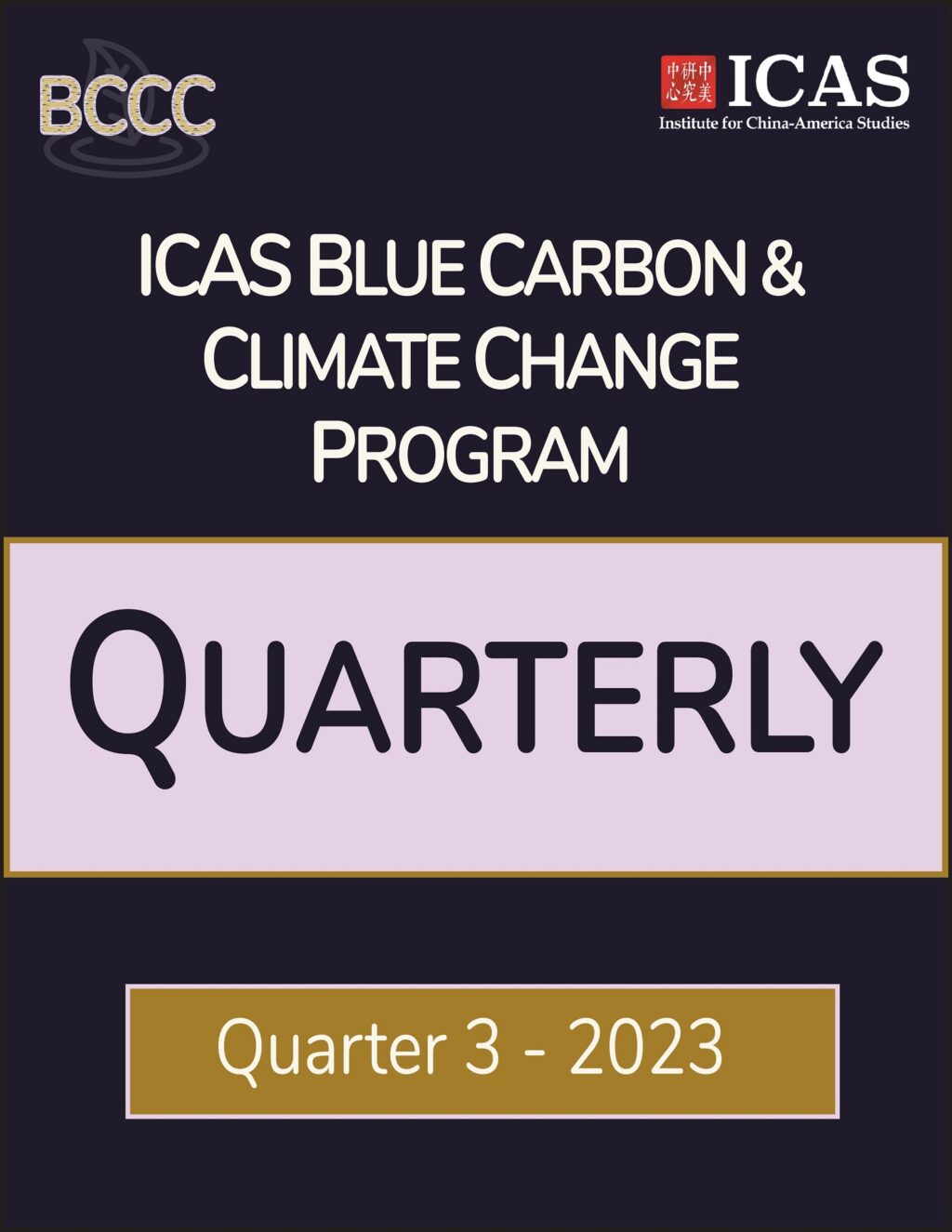

Released the first week of every new quarter, the BCCC Quarterly is a magazine-style newsletter that records the most important trends and developments regarding blue carbon and climate change policies and regulations in China, the U.S., and other regions, as well as international regimes such as the United Nations. It also includes two special sections — the ‘Theme of the Quarter’ and the ‘Blue Carbon Country Profile’ — that aim to bring a fresh element to each issue.
Theme of the Quarter: ‘The Rise of Carbon Crediting’
Blue Carbon Country Profile: Pacific Island Countries and Territories
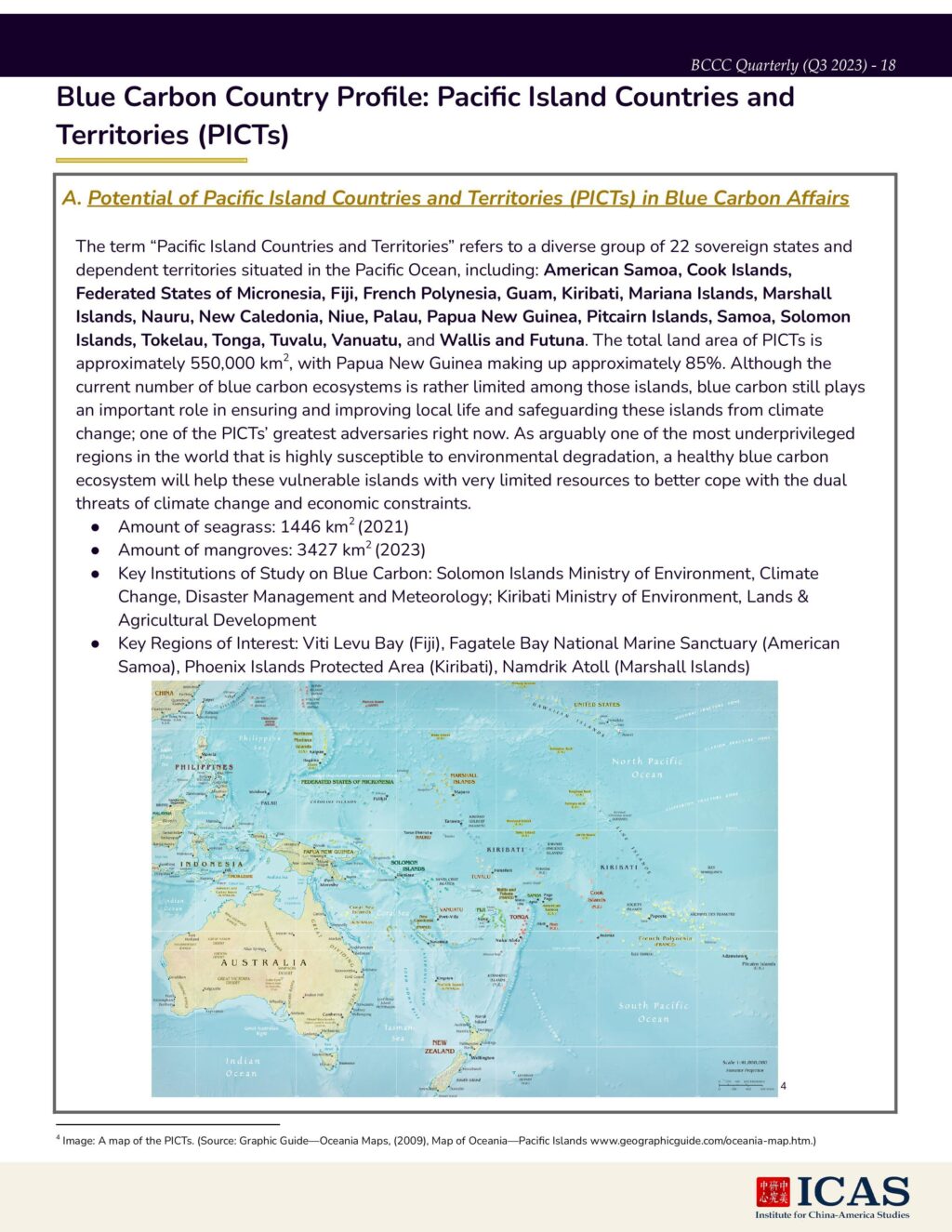
by Zhangchen Wang
September 29, 2023
“Climate change has reached an extremely dangerous stage in which it is necessary to take all feasible measures without discrimination to combat it.” This sentence, while certainly true, is also becoming a platitude. Carbon credits have always been one of the more controversial options to address climate change, but it will undoubtedly have a positive impact on a variety of aspects if used correctly…
*This commentary was originally released as part of the ICAS BCCC Program Q3 Quarterly newsletter’s ‘Theme of the Quarter’*
by Zhangchen Wang
September 25, 2023
On September 25, 2023, the Center for Strategic & International Studies (CSIS) held an event on the topic of “advancing climate finance,” aiming to address the challenges related to climate change and climate finance in order to build a more productive, resilient, and equitable future through effective climate finance. The event started with an opening remark by Mafalda Duarte, Executive Director of the Green Climate Fund (GCF). The three panelists who joined the discussion were Marcene Mitchell, Senior Vice President of Climate Change of the World Wildlife Fund for Nature, Jacqueline Muna Musiitwa, Senior Climate Finance Advisor of USAID, and Christelle van Vuuren, Operations Officer of International Finance Corporation. Joseph Majkut, Director of the CSIS Energy Security and Climate Change Program, and Gracelin Baskaran, Research Director and Senior Fellow of the CSIS Energy Security and Climate Change Program, moderated the two sections, respectively.
In her opening remarks, Mafalda Duarte presented the idea that, although developed countries need to be ambitious leaders in terms of domestic climate investment, developing countries are actually the key to global climate goals…
On Tuesday, September 26, 2023, Senior Fellow Sourabh Gupta discussed the breakdown in Canada-India ties on CGTN America’s The Heat.


The Institute for China-America Studies is an independent nonprofit, nonpartisan research organization dedicated to strengthening the understanding of U.S.-China relations through expert analysis and practical policy solutions.
1919 M St. NW Suite 310,
Washington, DC 20036
icas@chinaus-icas.org
(202) 968-0595
© 2024 INSTITUTE FOR CHINA-AMERICA STUDIES. ALL RIGHTS RESERVED.